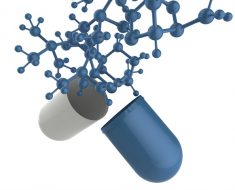The number of organs donated as a result of overdose death has increased 24-fold since 2000 and transplants with those organs have similar outcomes to transplants with organs donated after trauma or natural death. Optimizing their use is not a solution to the organ shortage, but it could help to address the problem. Findings from a National Registry study are published in Annals of Internal Medicine.
Overdose deaths in the U.S. have nearly tripled over the past 15 years, with 52,404 deaths reported in 2015. At the same time, the U.S. has a severe shortage of organ donors for transplant, with more than 120,000 patients on national waitlists but only 10,281 donors in 2017. For many, the risk for death while on the waitlist is greater than the chance of receiving an organ. Understanding the viability of organs transplanted from overdose deaths could inform decision-making and potentially help to address the shortage issue.
Researchers from Johns Hopkins University School of Medicine used data from the Scientific Registry of Transplant Recipients to characterize organ donors who died of overdose and to analyze outcomes in patients who received those organs. Their analysis included 138,565 deceased donors and 337,934 solid organ transplant recipients between 2000 and 2017. The authors found that overdose-death donors transplants increased substantially from about 1 percent of donors in 2000 to over 13 percent in 2017. Outcomes in patients with organs donated from overdose death were noninferior to those obtained from other types of donors and, in some cases, were better. Compared with medical-death donors, overdose-death donors were less likely to have hypertension, diabetes, or prior myocardial infarction but had slightly higher creatinine levels and were more likely to donate after circulatory death.
Source: Read Full Article





